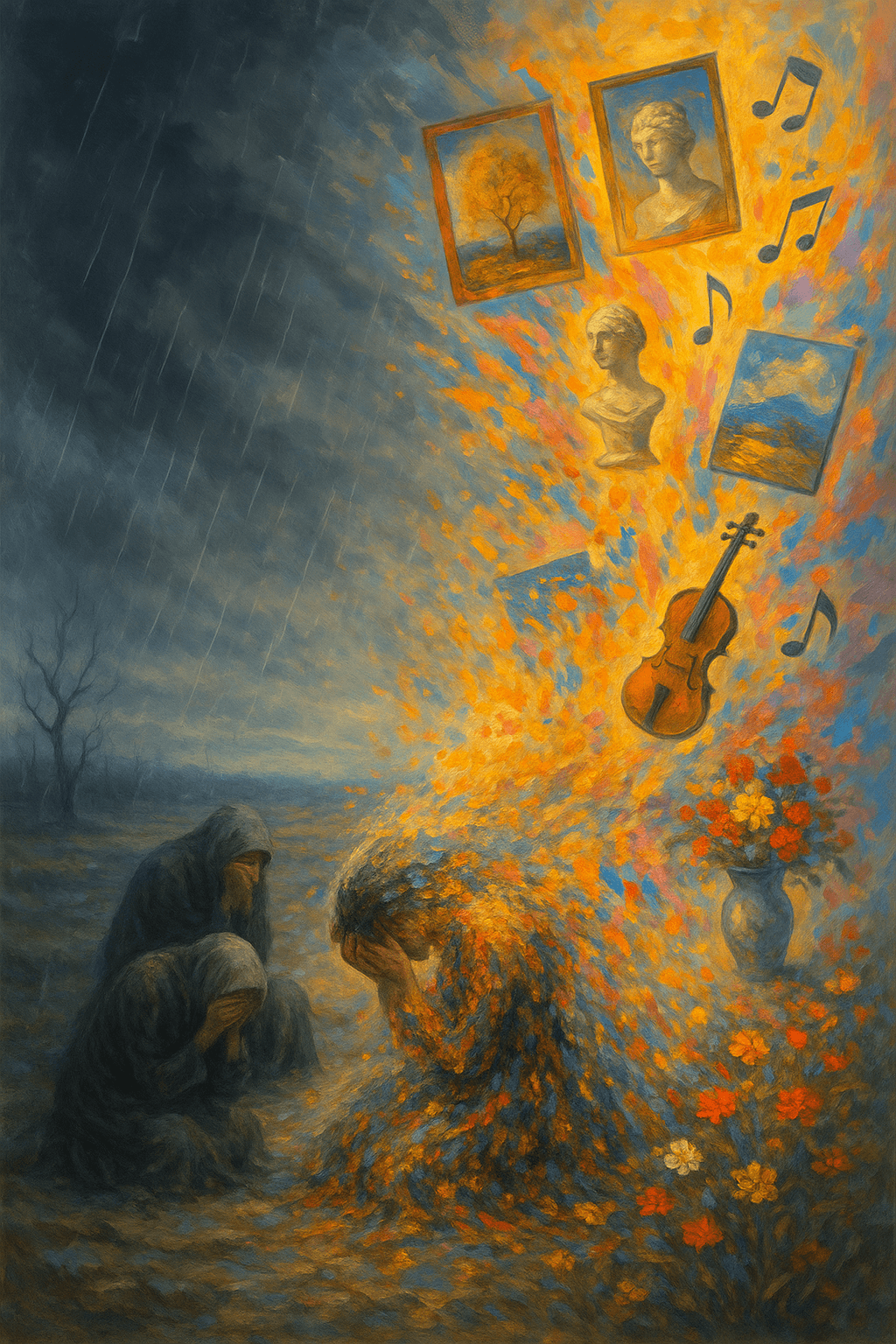Transforming Suffering Into Art: Nietzsche’s Enduring Insight

The only way to deal with suffering is to transform it into art. — Friedrich Nietzsche
—What lingers after this line?
One-minute reflection
What does this quote ask you to notice today?
Nietzsche’s Philosophy of Suffering
Friedrich Nietzsche, renowned for his provocative ideas, viewed suffering not as a curse to be avoided, but as an essential ingredient in human growth and creativity. Rather than escape pain, Nietzsche believed in harnessing it—turning what wounds us into something generative. His quote encapsulates this conviction: suffering is not merely to be endured, but actively transformed into beauty or meaning, most compellingly through art.
Art as Alchemy of Experience
Building on Nietzsche’s premise, art becomes a kind of alchemy—a process that transmutes the base materials of hardship into gold. As seen in Vincent van Gogh's troubled life, periods of despair birthed some of his most luminous paintings. The suffering, channeled through brush and color, found release and resonance, illustrating how creative acts can offer hope and connection to others facing similar darkness.
Catharsis and Collective Healing
Importantly, the transformation of suffering into art is not merely personal. Classical theories like Aristotle's notion of catharsis, discussed in his *Poetics* (c. 335 BC), highlight art’s role in communal emotional purification. Through tragedy or music, audiences temporarily experience others’ pain, gaining solace and insight in their own struggles. Thus, art serves as a vessel for shared healing.
Contemporary Testimonies in Art
The transformative potential of suffering persists today. Consider Maya Angelou, whose poetry and memoirs (notably, *I Know Why the Caged Bird Sings*) convert personal trauma into works that inspire global audiences. By bravely articulating hardship, artists help others recognize their own resilience and possibilities for transcendence.
From Despair to Empowerment
Ultimately, Nietzsche’s insight offers more than comfort—it provides a roadmap for empowerment. When individuals channel their anguish into art, they reclaim agency, reshaping narrative and identity. The cycle is complete: pain, rather than silencing us, becomes the wellspring of originality and empathy that enrich both artist and society alike.